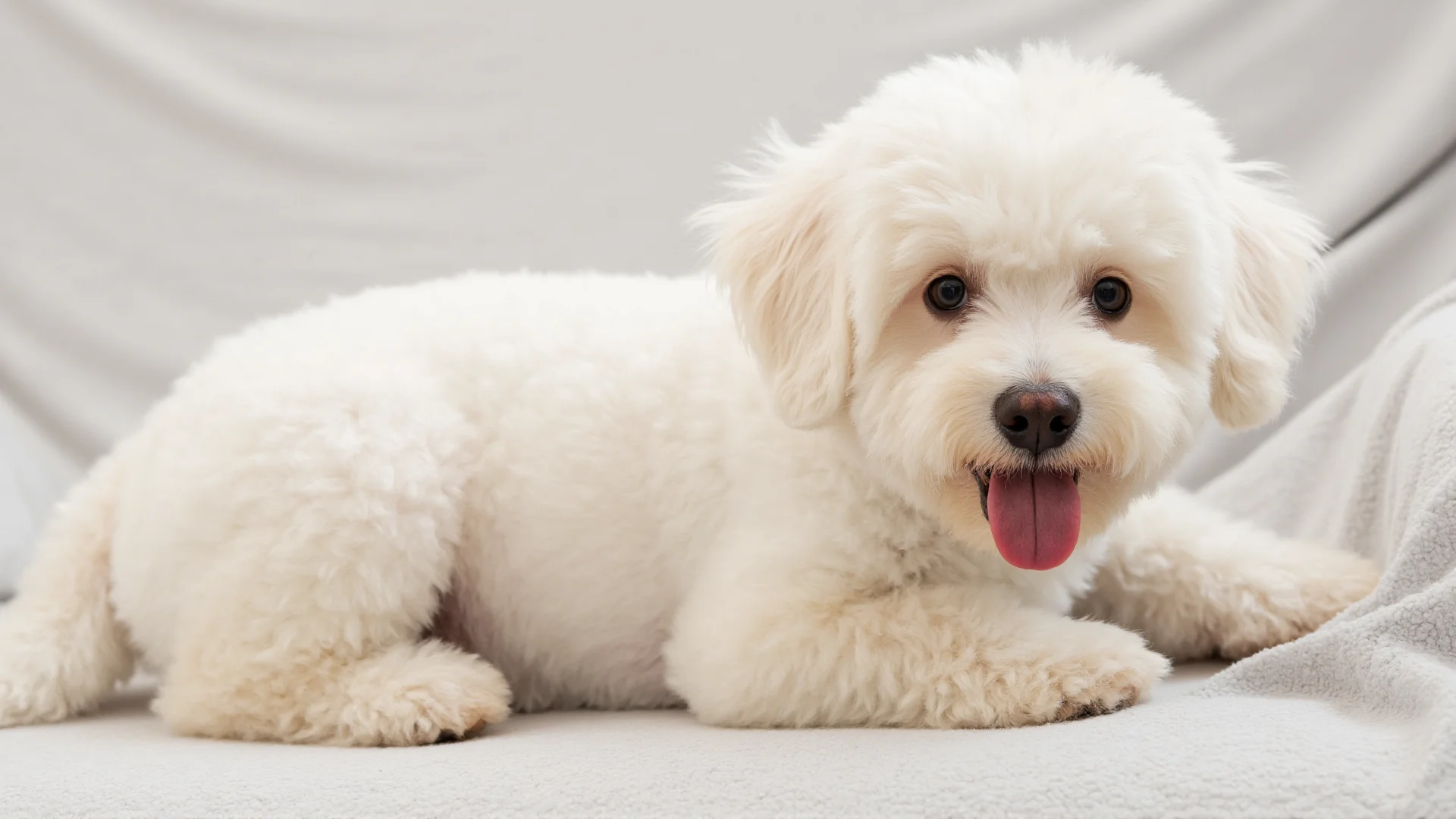Complete Bichon Frise Care Guide: Everything You Need to Know for a Happy, Healthy Companion
The Bichon Frise, with its fluffy white coat and cheerful disposition, has captured hearts worldwide. These small, sturdy dogs are known for their playful nature and hypoallergenic qualities, making them excellent companions for families and individuals alike. However, proper care is essential to ensure your Bichon Frise lives a long, healthy, and happy life.
Understanding Your Bichon Frise's Unique Needs
Before diving into specific care requirements, it's important to understand what makes Bichon Frises special. These dogs were originally bred as companion animals, which means they thrive on human interaction and can develop separation anxiety if left alone for extended periods. Their double coat requires regular maintenance, and their small size makes them susceptible to certain health conditions that larger breeds don't typically face.
Grooming: The Foundation of Bichon Frise Care
Daily Brushing is Essential
Your Bichon Frise's beautiful coat requires daily attention to prevent matting and tangling. Use a slicker brush or pin brush to gently work through the coat, starting from the skin and working outward. Pay special attention to areas prone to matting, such as behind the ears, under the legs, and around the collar area.
Professional Grooming Schedule
Schedule professional grooming every 4-6 weeks to maintain your Bichon's signature look. A professional groomer will trim the coat, clean the ears, trim nails, and ensure your dog looks and feels their best. Between professional visits, you can maintain the coat with regular brushing and spot cleaning.
Bathing Guidelines
Bichon Frises should be bathed every 2-3 weeks or as needed. Use a high-quality dog shampoo designed for white coats to maintain their pristine appearance. Always ensure the coat is completely dry after bathing, as trapped moisture can lead to skin issues.
Eye and Ear Care
Clean your Bichon's eyes daily with a damp cloth to prevent tear staining, which is common in this breed. Check and clean the ears weekly to prevent infections, using a veterinarian-approved ear cleaning solution.
Nutrition: Fueling Your Bichon's Health
Choosing the Right Food
Select a high-quality small-breed dog food that meets AAFCO standards. Bichon Frises have higher metabolic rates than larger dogs, so they need nutrient-dense food in smaller kibble sizes. Look for foods with real meat as the first ingredient and avoid fillers like corn, wheat, and soy.
Feeding Schedule and Portions
Adult Bichon Frises typically need 1/2 to 1 cup of high-quality dry food daily, divided into two meals. Puppies require more frequent feeding – three to four small meals per day. Always measure portions to prevent overfeeding, as Bichons can easily become overweight.
Special Dietary Considerations
Some Bichon Frises may have food sensitivities or allergies. Common allergens include chicken, beef, dairy, and grains. If you notice signs of food allergies such as itching, digestive upset, or skin irritation, consult your veterinarian about an elimination diet or hypoallergenic food options.
Exercise and Mental Stimulation
Daily Exercise Requirements
Despite their small size, Bichon Frises are energetic dogs that need regular exercise. Aim for 30-45 minutes of activity daily, which can include walks, playtime in the yard, or indoor games. Their exercise needs can typically be met with two short walks and some interactive play.
Mental Enrichment Activities
Bichon Frises are intelligent dogs that need mental stimulation to prevent boredom and destructive behaviors. Provide puzzle toys, rotate their toy selection regularly, and engage in training sessions. Hide treats around the house for them to find, or teach them new tricks to keep their minds active.
Indoor vs. Outdoor Exercise
While outdoor walks are important for socialization and mental stimulation, much of a Bichon's exercise needs can be met indoors. This makes them excellent apartment dogs, but they still benefit from outdoor exploration and fresh air.
Health Monitoring and Preventive Care
Common Health Concerns
Bichon Frises are generally healthy dogs, but they're predisposed to certain conditions including luxating patella (kneecap dislocation), hip dysplasia, eye problems, and allergies. Regular veterinary check-ups can help detect and manage these issues early.
Dental Care
Small breeds like Bichon Frises are prone to dental problems due to their compact jaw size. Brush your dog's teeth 2-3 times per week using dog-specific toothpaste. Provide dental chews and consider professional dental cleanings as recommended by your veterinarian.
Weight Management
Monitor your Bichon's weight regularly, as obesity can exacerbate joint problems and other health issues. You should be able to feel their ribs without pressing hard, and they should have a visible waist when viewed from above.
Vaccination and Parasite Prevention
Maintain a regular vaccination schedule as recommended by your veterinarian. Keep up with flea, tick, and heartworm prevention year-round, as these parasites can cause serious health problems.
Training and Socialization
House Training Tips
Bichon Frises can be challenging to house train due to their small bladders and sometimes stubborn nature. Establish a consistent routine, use positive reinforcement, and consider crate training. Take them outside frequently, especially after meals and naps.
Basic Obedience Training
Start training early with basic commands like sit, stay, come, and down. Bichon Frises respond well to positive reinforcement techniques using treats, praise, and play. Keep training sessions short (5-10 minutes) but frequent to maintain their attention.
Socialization Importance
Proper socialization is crucial for Bichon Frises to prevent them from becoming overly protective or anxious. Expose them to different people, animals, sounds, and environments during their critical socialization period (3-14 weeks) and continue throughout their lives.
Creating a Bichon-Friendly Environment
Safety Considerations
Bichon-proof your home by removing small objects they could swallow, securing electrical cords, and ensuring they can't access toxic plants or chemicals. Consider their small size when arranging furniture – provide ramps or steps for high beds or couches to prevent jumping injuries.
Comfort and Enrichment
Create comfortable resting areas with orthopedic beds to support their joints. Provide a variety of appropriate-sized toys, including soft toys for comfort and more durable ones for active play. Ensure they have access to fresh water at all times.
Temperature Considerations
Bichon Frises can be sensitive to extreme temperatures. In hot weather, ensure they have shade and cool water, and limit exercise during peak heat. In cold weather, consider a sweater or coat for outdoor activities, as their coat alone may not provide adequate warmth.
Building a Strong Bond with Your Bichon Frise
Quality Time Together
Bichon Frises are companion dogs that thrive on interaction with their families. Spend quality time playing, training, and simply being together. They often enjoy being involved in family activities and can become anxious if consistently excluded.
Understanding Their Communication
Learn to read your Bichon's body language and vocalizations. They're generally expressive dogs that will communicate their needs, excitement, and concerns through various behaviors. Understanding these signals helps you respond appropriately to their needs.
Addressing Separation Anxiety
If your Bichon shows signs of separation anxiety, gradually increase alone time, create positive associations with your departure, and ensure they have engaging activities when you're gone. Severe cases may require professional training assistance.
Conclusion
Caring for a Bichon Frise requires dedication, particularly in grooming and providing adequate attention and stimulation. However, the reward is a loving, loyal companion that will bring joy to your family for 12-15 years or more. By following these comprehensive care guidelines, you'll ensure your Bichon Frise lives a healthy, happy life while strengthening the bond between you and your furry friend.
Remember that every dog is an individual, and while these guidelines provide a solid foundation, always consult with your veterinarian for personalized advice based on your specific Bichon Frise's needs, age, and health status.




